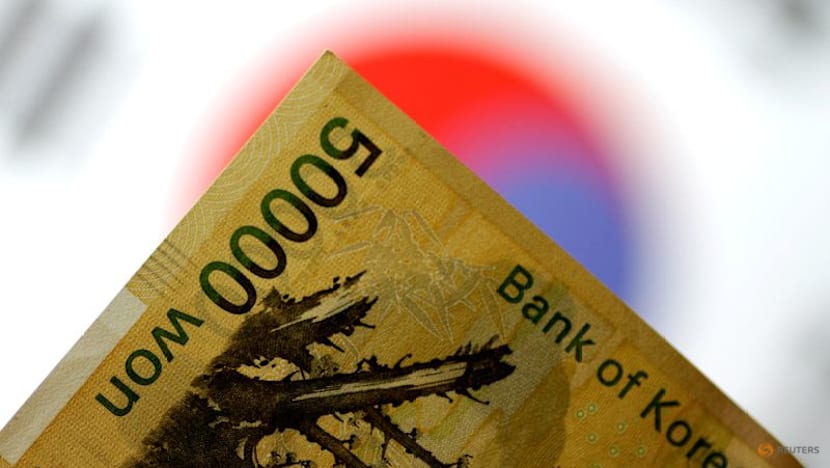South Korea finance chief vows FX stability, but offers no near-term measures

A South Korea won note is seen in this illustration photo May 31, 2017. REUTERS/Thomas White/Illustration
SEJONG, South Korea :South Korea's Finance Minister vowed on Wednesday to stabilise a weak won, but stopped short of introducing specific policy measures to address the situation, amid growing worries about the persistent weakness of the currency.
Minister Koo Yun-cheol told a rare press conference focused on the currency market that authorities were closely monitoring "speculative trading and herd-like behaviour", adding that they would consider all available options to stabilise it.
"It is true that our domestic market is reacting to high uncertainty in global financial markets more sensitively than other currencies due to structural demand pressure for dollars," Koo said.
Koo, however, made no mention of any specific measure to address rising dollar demand in the near term, despite market expectations for policy efforts to stabilise the market, after a series of meetings with the National Pension Service (NPS), exporting companies and domestic stock brokerages.
"Market attention was extremely high on the substance of the press conference, but it was bland," a local currency trader said.
The won cut gains after the press conference to trade up 0.3 per cent at 1,465.5 per dollar as of 0420 GMT, compared with a session high of 1,457.0. The currency, earlier this week, hit its weakest level since early April at 1,479.4.
Referring to a consultative body formed on Monday with the NPS, Koo said it will not be aimed at pulling in the world's third-largest pension fund for a temporary measure to curb currency weakness but will focus on a long-term plan to balance investment returns and market stability.
When asked about incentives for exporters to repatriate earnings and tax benefits to boost domestic stock investments, he said neither was currently being considered.
The won has weakened more than 7 per cent in the second half of 2025 amid worries over an investment package that is part of a trade deal with the United States, while also pressured by higher overseas investments by retail investors as well as the NPS.
The Bank of Korea is expected to keep its key interest rate unchanged on Thursday, according to a Reuters poll, as policymakers grapple with a volatile currency and an overheated housing market.













